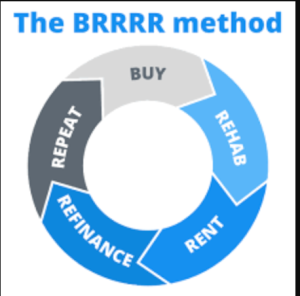
Real estate investors often seek avenues to maximize returns and minimize tax liabilities in property transactions. One powerful tool in their arsenal is the 1031 exchange, a provision in the Internal Revenue Code that allows for the deferral of capital gains taxes when selling and acquiring like-kind properties.
Understanding 1031 Exchange
Eligibility Criteria
To benefit from a 1031 exchange, investors must meet certain eligibility criteria. The property involved must be held for productive use in a trade or business or for investment purposes, and the exchange must involve like-kind properties.
Types of Properties Eligible for 1031 Exchange
Understanding what constitutes “like-kind” properties is crucial. In the context of real estate, this term is interpreted broadly, encompassing various property types such as residential, commercial, or even undeveloped land.
Benefits of 1031 Exchange
Tax Deferral
The primary advantage of a 1031 exchange is the deferral of capital gains taxes. By reinvesting the proceeds from the sale into a like-kind property, investors can defer taxes until a future sale.
Wealth Accumulation
Continued participation in 1031 exchanges allows investors to continually defer taxes, facilitating the accumulation of wealth over time. This can be a powerful wealth-building strategy, especially for those involved in the real estate market for the long term.
How to Execute a 1031 Exchange
Identifying Replacement Properties
Investors have a limited timeframe, known as the identification period, to identify potential replacement properties. Careful planning and consideration of investment goals are crucial during this phase.
Timelines and Deadlines
Compliance with specific timelines is essential. The investor must complete the acquisition of the replacement property within 180 days from the sale of the relinquished property to qualify for tax deferral.
Qualified Intermediary Role
To ensure a valid 1031 exchange, investors must use a qualified intermediary to facilitate the transaction. The intermediary holds the funds during the exchange process, preventing the investor from having constructive receipt of the funds.
Potential Risks and Challenges
Identification Period Challenges
The limited identification period can be challenging for investors, requiring prompt decision-making and careful property assessment to meet the IRS guidelines.
Like-Kind Property Requirements
Ensuring that replacement properties meet the like-kind requirements is critical. The IRS has specific rules on what qualifies as like-kind, and deviations can jeopardize the 1031 exchange benefits.
Financing and Boot Issues
Managing financing and potential “boot” (non-like-kind property or cash received) can be complex. Investors must be mindful of these factors to avoid unexpected tax consequences.
Tips for a Successful 1031 Exchange
Professional Guidance
Engaging with experienced tax and legal professionals is crucial. Their expertise can guide investors through the complexities of the 1031 exchange process, ensuring compliance and maximizing benefits.
Property Selection
Careful consideration of replacement properties is essential. Investors should align their choices with long-term investment goals and market trends to enhance the potential for future returns.
Financial Planning
Thorough financial planning is paramount. Investors should assess potential financing needs, tax implications, and overall portfolio strategies to execute a successful 1031 exchange.
Conclusion: Elevating Your Real Estate Strategy Through 1031 Exchanges
In conclusion, embracing the strategic potential of 1031 exchanges empowers real estate investors to shape their portfolios with precision, amplifying returns and mitigating tax liabilities. By navigating eligibility criteria, harnessing the benefits, and executing exchanges with precision, investors can craft a resilient and tax-efficient real estate strategy. The power of 1031 exchanges lies in their ability to not only defer taxes but also to strategically position investors for long-term wealth accumulation in the dynamic landscape of real estate.
Frequently Asked Questions (FAQs)
Q1: How frequently can I utilize a 1031 exchange?
Investors can leverage a 1031 exchange as frequently as they desire, providing a continuous avenue for tax deferral and sustained wealth accumulation.
Q2: Can I exchange a residential property for a commercial property?
Absolutely. 1031 exchanges permit the swapping of different property types, granted they are deemed like-kind according to IRS guidelines.
Q3: What happens if I need to identify a replacement property within the designated timeframe?
Please identify a replacement property within the specified timeframe to ensure the 1031 exchange is maintained. Seeking guidance from a qualified intermediary or tax professional is advisable in such scenarios.
Q4: Are there restrictions on using the proceeds for personal use?
Using the proceeds for personal use may trigger tax consequences. It is imperative to reinvest the funds into like-kind properties to preserve the benefits of a 1031 exchange and optimize tax advantages.





